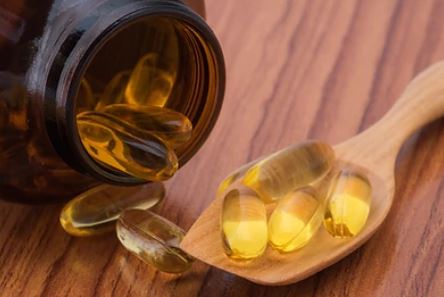
It’s common knowledge that Americans consume too few omega-3 and too many omega-6 fatty acids. This is key cause of the epidemic of inflammatory conditions such as asthma, autoimmunity, cancer, cardiovascular disease, and diabetes. Yet omega-3 supplements are pricey. There are ways to supercharge your omega-3 intake and get the most out of the omega 3 fatty acids you consume whether via food or supplements.
Don’t Underdose or Overdose
Many people are wasting money taking ineffective doses of fish oil. Generally speaking, at least 1.5 grams of EPA plus DHA is required for an anti-inflammatory effect and more than 7 grams per day yields no incremental benefit.
Use Plant Omega-3s to Boost Anti-Inflammatory Omega 6s
Not all omega-6 fatty acids lead to inflammation. Gamma Linoleic Acid or GLA can be converted to anti-inflammatory or pro-inflammatory chemicals depending on conditions. You can increase the anti-inflammatory effect of GLA naturally by eating plant omega-3 foods, such as walnuts, flax, chia and hemp seeds. Five grams of plant omega 3s per day has been shown to increase GLA production. That’s 2 TBSP chia seeds or ground flax seeds, or 1/4 cup walnuts per day.
Take EPA with GLA
If you supplement with GLA, found in borage, evening primrose and black currant seed oils, you must supplement with EPA, found in fish oil, to get an anti-inflammatory effect from GLA. The recommended ratio of EPA to GLA is 3:2. Most professional quality fish oil plus GLA supplements are in this ratio.
Minimize Shellfish, Dairy and Factory Farmed Meat, Poultry and Fish
These foods increase production of arachadonic acid, a key omega-6 derived pro-inflammatory mediator, increasing your need for omega-3s. This is why at HealthSpan we advocate making the extra effort to find pastured and wild animal-sourced foods. When animals eat their natural diet of mostly green plants, their eggs, flesh and milk is much higher in omega-3s. Pastured and wild animal flesh foods generally produce two times less arachadonic acid than factory farmed. If you have an inflammatory condition, we also recommend eliminating all dairy products because casein, a protein abundant in dairy, is one of the most inflammatory proteins found in the human diet.
Keep Normal Glucose and Insulin Levels
Glucose and Insulin also increase your need for omega-3s in the same way shellfish, dairy and factory farmed animal sourced foods do. At HealthSpan we advocate “veg-intense” eating, enjoying 1/2 to 3/4 of a plate of vegetables at every meal. Eating “veg-intense” as well as eating real food that once walked, swam, slithered, flew or grew on this planet is key to maximizing the effect of the omega 3s in the diet.
Watch Alcohol Intake
Alcohol of any kind also increases production of arachadonic acid. At HealthSpan, we recommend no more than three to four standard drinks per week and not in one sitting.
Check Your Stress Response
Adrenaline and glucocorticoids, such as the chronic stress hormone cortisol and asthma medications, are huge promoters of the omega-6 pro-inflammatory pathway, again increasing our need for omega-3s. This is just one reason we recommend everyone a adopt a near daily practice to lower these stress hormones and increase their ability to respond to stressful situations with a minimal adrenaline or cortisol rush. We recommend mindfulness meditation, centering prayer, yoga, tai chi and chi gong.

